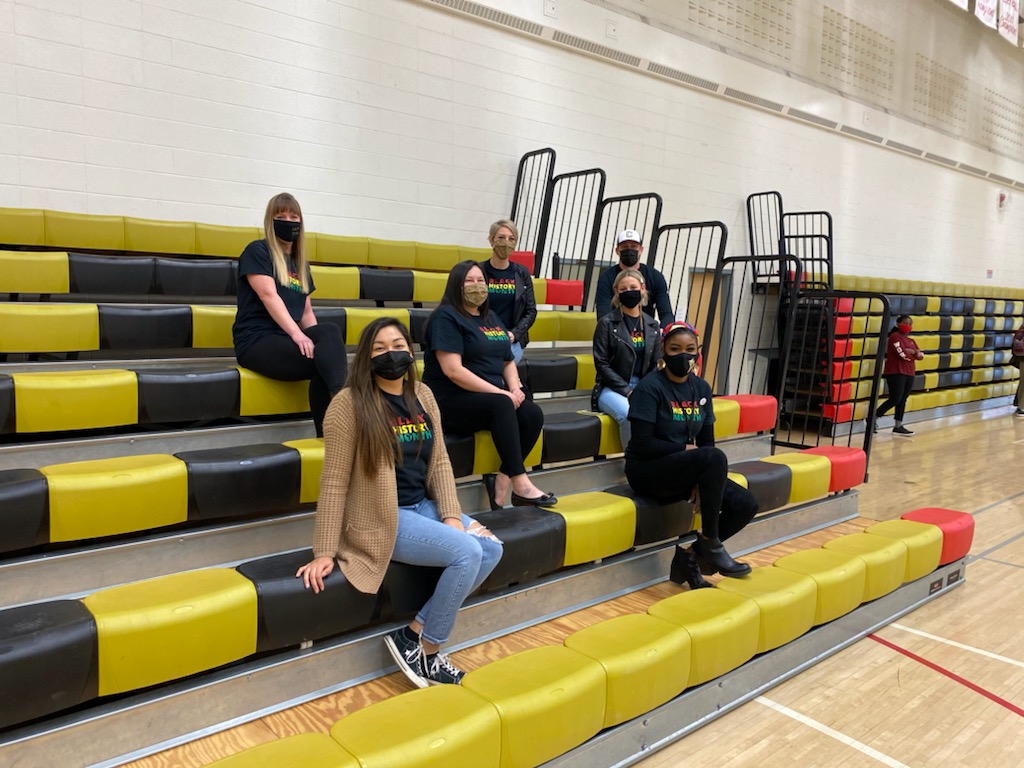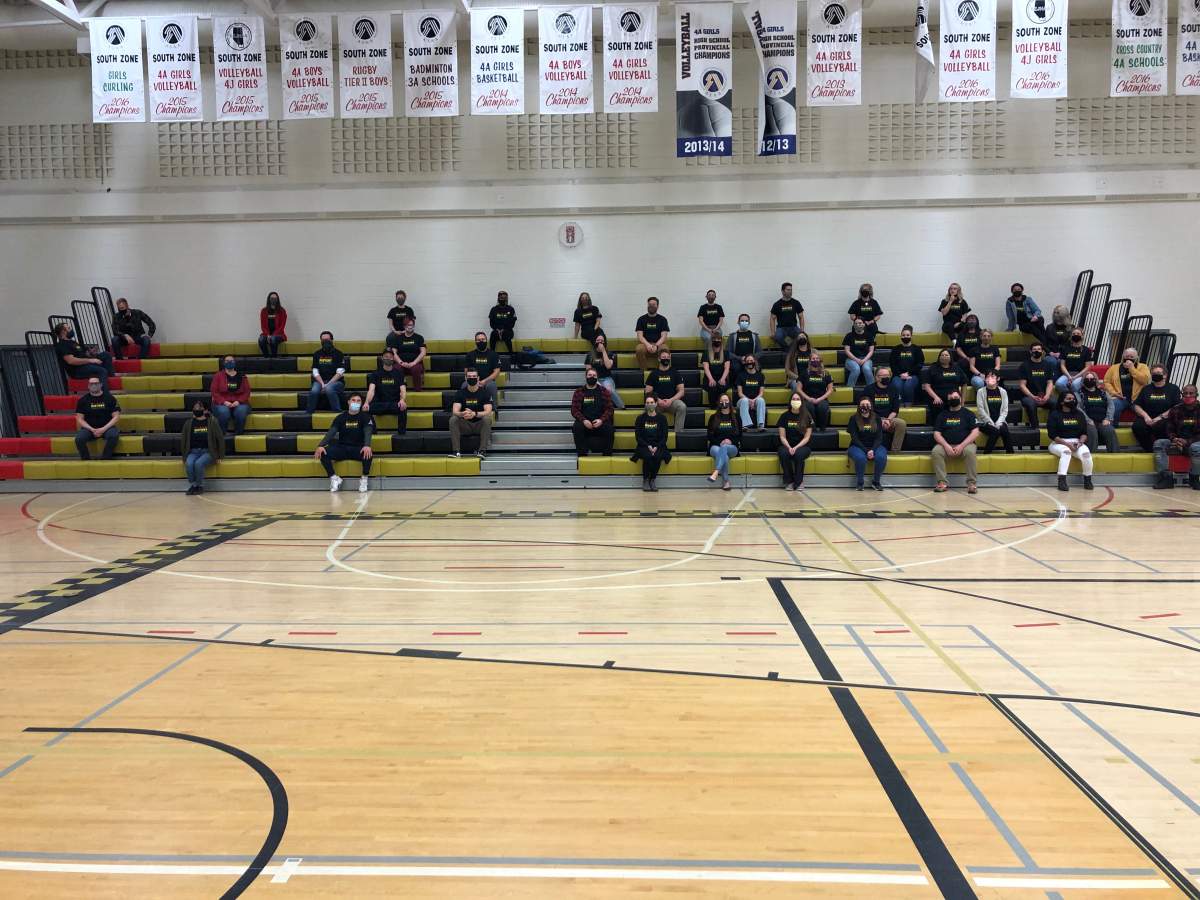As Black History Month comes to a close, Chinook High School in Lethbridge, Alta., is spreading as much awareness as possible.

Simone Linn, a family liaison counsellor in her second year with the school, says she wanted to make sure both students and staff were able to understand the meaning behind the month.
“Last year we just did like a bulletin board and talked about it briefly, this year we figured we would do more,” Linn explained.
Linn says Black History Month T-shirts were given out to staff, screenings of the movie Hidden Figures were held, and other projects were taken on throughout the school.
“If you follow (the school) Instagram page, we posted a Black person — preferably a Black Canadian — who had success, we posted them daily on our Instagram page,” she said.
A leadership class created poster boards featuring Black inspirational people who showed resilience or courage, with information for passersby to read in the school’s foyer.
The school also hosted virtual guest speaker Dr. Claude Shema, a Black psychologist and psychiatrist from Edmonton, Alta.
Prior to her arrival, Linn says the school hadn’t done much in terms of recognizing Black History Month.

Get daily National news
“Sometimes if there isn’t a person championing the cause, and saying, ‘Hey this hasn’t happened,’ it just gets missed,” she explained, adding she hopes each year will only continue to grow.
“It’s very important that students understand Black history as it relates to the Canadian context too, and not just American Black history,” Linn said.
Buthina Mohamed, a Grade 10 student, says she helped plan events for the month after connecting with Linn following an incident involving the use of a racial slur at the school.
“It really opened up a conversation about race and what goes on at our school,” Mohamed said. “Especially in Lethbridge, I feel like Chinook has definitely paved the way to making Black History Month more recognized.”
When it comes to in-classroom teaching, Mohamed says more still needs to be done.
“Most of the stuff that I know about Black history actually came from my dad, so I haven’t really been taught about it in school,” she said. “I think it should be more recognized in school, we should be learning about Black history regularly, rather than me having to go out and find information on it.”
“I just think that our curriculum needs to be more diverse to begin with, and I hope that happens.”
An online petition was created following the death of George Floyd and subsequent Black Lives Matter rallies across Canada and the United States.
Now with nearly 45,000 signatures, it asks the Government of Alberta to make immediate changes to the K-12 curriculum — requesting Black History be added.
In a statement to Global News, Justin Marshall, the press secretary for the minister of education, said in the current plan, it will be included.
“Alberta’s future K-12 curriculum will include content on the history of Black Albertans and Canadians,” Marshall said. “We have engaged various experts, including Black scholars, as part of our mandate to align the curriculum to our new Ministerial Order on Student Learning.
“As part of the government’s commitment to recognize the contributions of Black Albertans within our curriculum, Dr. Marvin Washington and Dr. Onookome Okome provided advice on diversity based on their expertise and lived experience.”
The K-12 curriculum is currently under review, with changes expected to be implemented as early as the 2022-2023 school year.
Mohamed says she hopes the education around Black history can shift to a more positive light.
“I think it’s stepping away from the narrative of Black history being slavery, and stepping more toward positive things and Black people being successful and all the good things and contribution that Black people have had to society” she said.
The House of Commons officially recognized February as Black History Month in 1995.




Comments
Want to discuss? Please read our Commenting Policy first.